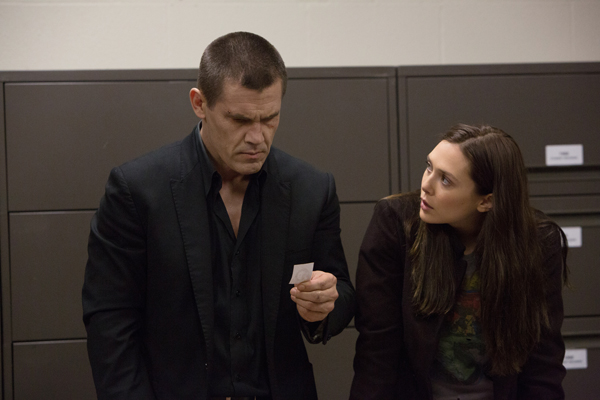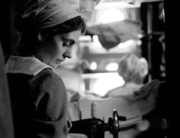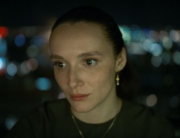It’s difficult to discuss Spike Lee’s Oldboy, a remake/reimagining of the 2003 classic by South Korean writer/director Park Chan-wook, without mentioning that it is, after more than 25 years, Lee’s first film not labeled a ‘joint” in the opening credits—this is a Spike Lee (gasp) film. The bulk of which feels like it could’ve been made by any competent mainstream Hollywood filmmaker, rather than someone with Lee’s enviable credentials as a top-notch provocateur. Still, there are just enough inspired touches here to make the Lee’s version a worthwhile reinterpretation.
Park’s Oldboy is a very odd film, with a horrifying plot and plenty of memorable, haunting visuals. Its tone, style, and content all blend superbly well—it’s a strange story told in a strange way. In a way it’s too bad that the big-budget Hollywood treatment wasn’t given to a young, hungry, and intensely creative filmmaker who could’ve invested some manic energy to create some visuals on par with Park’s. Lee’s version has nothing so affecting as Dae-su’s first encounter with a human being after escaping his inexplicable 15-year imprisonment in the first film. In an extended sequence, Dae-su takes a man’s hand and rubs it on his face, soaking in the warmth and feeling of another human body that he had been so deprived of. Or the scene where he meets a companion in a restaurant for his first post-freedom meal and vows to eat something living, forcing himself to devour a live octopus in one long take. A younger filmmaker, making ‘joints” of their own and not “films,” may have felt inspired to come up with some striking images like those. Park’s Oldboy feels more like a joint than a film—Lee’s Oldboy is an exercise in trying to be as mainstream as possible to deliver a commercial hit.
Lee’s focus on plot, professionalism, and his quieting of his indie sensibilities pays some dividends. His film is a lean 98 minutes, while Park’s is 118, and though this sacrifices some visual artistry, it brings the story into tighter focus, making the wallop of a payoff at the end that much more viscerally affecting.
The original Oldboy is simply one of the best high-concept crime thrillers of the last 20 years, very much of a piece with Se7en, Fight Club, and The Usual Suspects, and Lee wisely chose to get out of the way and tell it. He also wisely leans on his actors a great deal, and Josh Brolin, as Joe Doucett, the American version of Dae-su, delivers one of the best performances of his career. I can’t recall an A-list male Hollywood star allowing himself to go to the feral, disgusting depths that Brolin does here. In the first 10 minutes, he ends up drunkenly crying and vomiting in a gutter in the pouring rain, and he spirals downward, sharply, from there.
Sharlto Copley, who came to wide attention in 2009’s revered District 9, was the best thing in this summer’s disappointing Elysium, and he creates one of the creepiest villains in recent memory as Adrian Pryce, the man who paid for Doucett’s imprisonment. I can’t wait to see what Copley, one of the most interesting character actors in high-concept genre films, comes up with next.
One of the many great things about Park’s version is its humor. Such a dark story needs it, and Dae-su’s narration is filled with ironic, pithy remarks. Lee’s film has no voice-over, but makes great use of the fact that Doucett is ignorant of all technology from 1993 to 2013, of which there has been quite a bit. There are some other interesting innovations Lee makes, particularly in Doucett’s first act of vengeance against the keeper of his prison, played by Samuel L. Jackson in an expanded role from the original. In Park’s film, Dae-su simply yanks out his keeper’s teeth—gruesome, but nothing too new. Lee, however, invents a method of torture that is as grotesquely cartoonish as it is original and disturbing. Brolin plays this scene beautifully, balancing an acknowledgement of the violent insanity of the act with the necessity of doing it to someone who watched him caged up like an animal for 20 years.
Fans of the original may take issue with Lee’s handling of the end, but I actually think he improved it, especially the depiction of Adrian Pryce’s family history, which is made far more appalling and complicated than his Korean counterpart. I can’t discuss any details without spoiling it, but I will say that the reliance on hypnosis as a cure-all in Park’s film is greatly improved upon in Lee’s. Those fond of Park’s film will find a lot to like here, and those who haven’t seen the original should go see this one first, as Lee manages to make the plot twists kick even harder than in the original.

















Leave A Comment